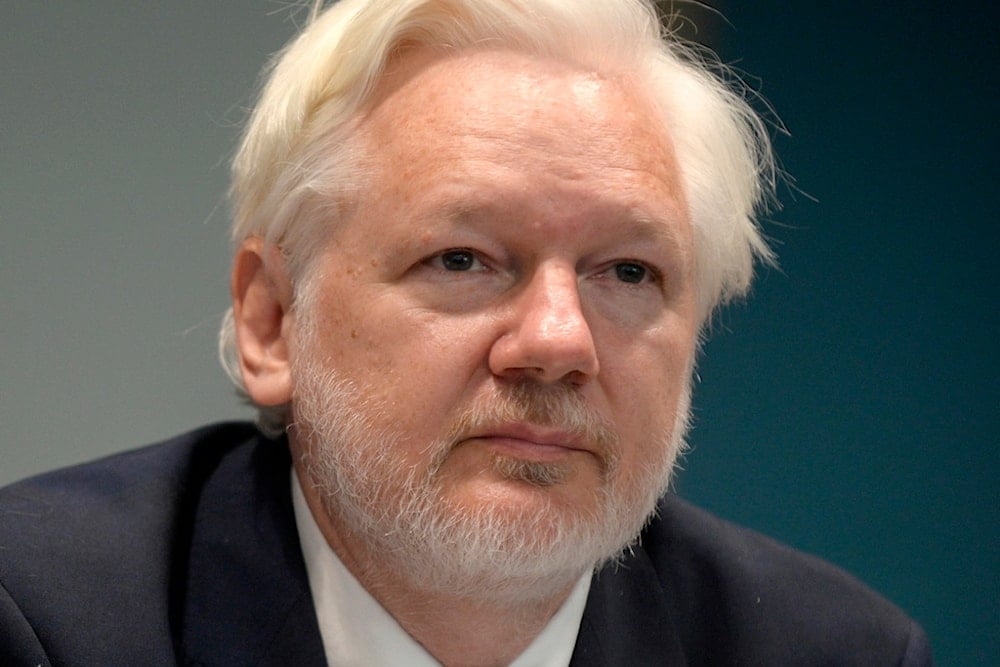PACE declares Julian Assange a political prisoner, criticizes US, UK
The Parliamentary Assembly of the Council of Europe (PACE) officially recognized Julian Assange as a political prisoner, criticizing the US for prosecuting him to conceal state misconduct and condemning the UK for failing to protect his freedom of expression and right to liberty.
-

Wikileaks founder Julian Assange attends the Council of Europe in Strasbourg, eastern France, Tuesday, October 1, 2024. (AP)
The Parliamentary Assembly of the Council of Europe (PACE), comprising lawmakers from 46 European countries, officially recognized WikiLeaks founder Julian Assange as a political prisoner on Wednesday, following his testimony the previous day regarding his treatment by US and UK authorities.
"The Assembly determined that Mr. Assange’s treatment justified his designation as a 'political prisoner' under a definition agreed in 2012, citing the severe charges brought against him by the US, which expose him to the possibility of life imprisonment, combined with his conviction under the US Espionage Act 'for what was – in essence – newsgathering and publishing,'" read the statement.
The resolution passed with a vote of 88 in favor, 13 against, and 20 abstentions, with most of the opposition coming from lawmakers in the UK and Poland.
Read more: Assange plea deal was the result of imminent US extradition failure
PACE criticized the US for failing to investigate the war crimes and human rights violations revealed by WikiLeaks, suggesting that Assange's prosecution appeared to be aimed at concealing state misconduct rather than protecting national security.
The assembly also condemned the UK for failing to safeguard Assange’s freedom of expression and right to liberty, subjecting him to prolonged detention in a high-security prison despite the political nature of the charges against him.
'I pleaded guilty to journalism'
On Tuesday, Assange testified before PACE's legal affairs and human rights committee in Strasbourg, marking his first public appearance since his release from a London prison on June 25.
He revealed that part of his plea deal with the US included a condition preventing him from filing a lawsuit with the European Court of Human Rights to challenge the verdict.
Assange told the Council of Europe rights body during his first public comments since his release, held at its Strasbourg headquarters, "I am not free today because the system worked. I am free today after years of incarceration because I pleaded guilty to journalism."
He remarked, "I eventually chose freedom over unrealizable justice... justice for me is now precluded," highlighting that he had faced a potential 175-year prison sentence.
Speaking calmly and accompanied by his wife Stella, who campaigned for his release, Assange emphasized, "Journalism is not a crime; it is a pillar of a free and informed society."
He stressed, "The fundamental issue is simple. Journalists should not be prosecuted for doing their jobs."
The cache of confidential documents released by WikiLeaks contained candid US State Department assessments of foreign leaders, reports of extrajudicial killings, and intelligence operations against allies.
Assange argued that his case sheds light on "how powerful intelligence organizations engage in transnational repression" against their adversaries, warning that this "cannot become the norm here."
Read more: Georges Abdallah campaign salutes Assange, calls for former's release
Earlier in June, a US judge sentenced WikiLeaks founder Julian Assange to time served, with no supervised release, following his guilty plea to a charge of conspiring to unlawfully obtain and disseminate classified information related to the national defense of the United States.
Assange had been imprisoned in the high-security Belmarsh prison in London since April 2019 after British police were allowed to raid the Ecuadorian Embassy where he had secured asylum since 2012.

 3 Min Read
3 Min Read








